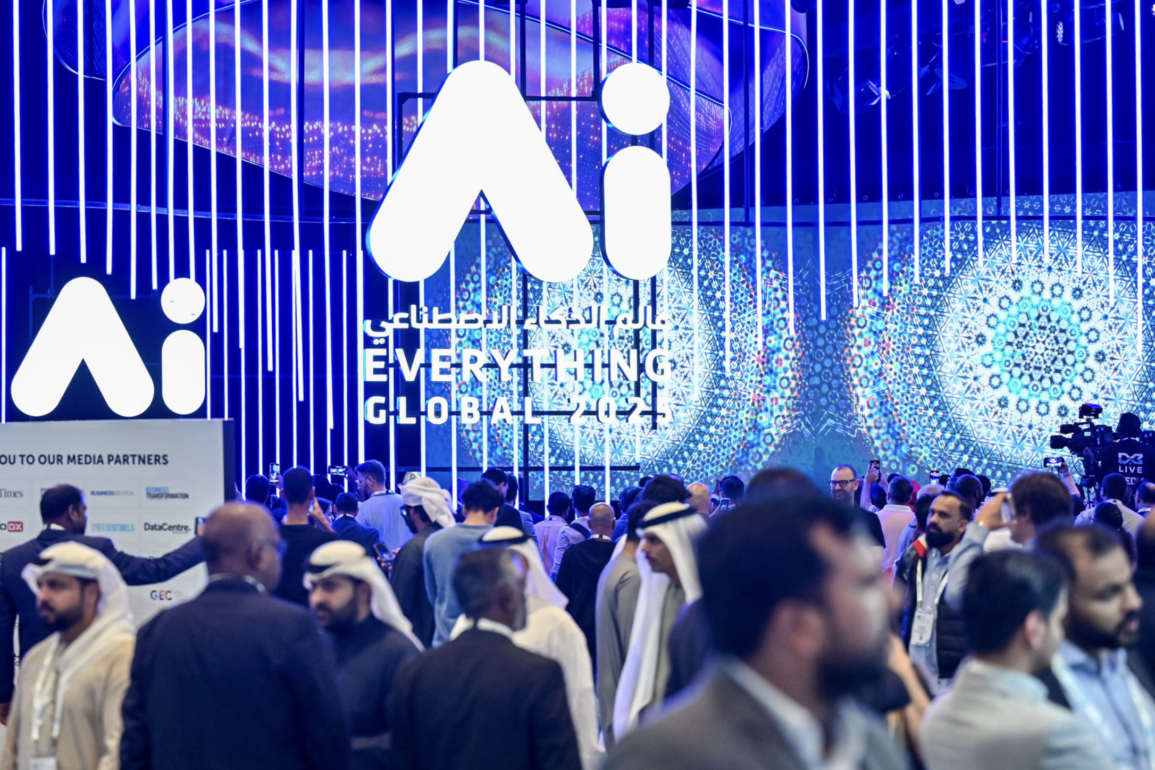After the AI Everything Global Tech Summit in Abu Dhabi concluded earlier today, one resounding theme emerged—artificial intelligence must serve the public interest. Unlike past AI gatherings that largely centered on technical advancements or corporate competition, this summit marked a shift toward meaningful global collaboration. Policymakers, industry leaders, and researchers gathered not just to discuss AI’s potential but to align on ensuring its benefits reach all corners of society.
One of the most important takeaways from this summit is the need for strong, equitable multi-stakeholder partnerships. The synergy between governments, academia, the private sector, and civil society will determine the success of AI development, adoption and use. No single entity—public or private—can address the challenges and opportunities AI presents alone. Collective action is essential to ensure that AI’s benefits are distributed equitably, avoiding monopolistic control and exploitation.
Collaborations between governments and companies should not merely focus on exporting AI to the Global South but should empower innovators in lower income countries to build AI solutions that address local and global challenges alike. If AI is to be a force for good, it must be inclusive, equitable, and responsive to the real needs of societies.
For Africa, this shift in focus is critical. Too often, discussions around AI in the Global South are framed in terms of “capacity building,” implying that our primary challenge is a lack of skills and that capacity is built by external actors. This is a misdiagnosis and assumes that the continent does not have the expertise in these novel technologies.
Africa’s young innovators, data scientists, and engineers have proven their technical expertise time and again with life changing transformational technologies, whether in Mobile money or geospatial solutions for agriculture and disaster/crisis response. The real bottleneck is access and excellence— ability to train and retain talent (brain drain), access to high-quality data, access to computational resources, and access to real-world problem-solving opportunities that must be backed by affordable capital.
Take for instance Zindi, a platform that connects African data scientists with real-world challenges, rather than limiting AI development to theoretical capacity-building workshops, Zindi offers tangible problem-solving experiences that drive innovation. By working with companies and organizations on pressing issues—such as optimizing supply chains, predicting climate risks, or improving healthcare outcomes—Zindi equips African developers with the tools and exposure they need to build solutions at scale.
This is the type of AI development Africa needs: one that is rooted in practical application that solves a real world challenge right now, rather than abstract training programs. At this week’s summit, I engaged with policymakers and industry leaders who recognize that AI is no longer just a competitive advantage for corporations—it is a collective global asset that must be shared and leveraged responsibly to unlock opportunity while solving problems and creating shared values, for everyone in the value chain.
The global AI landscape is evolving rapidly, and the global majority must not be left behind. Governments across Africa must prioritize policies that encourage AI development within the continent rather than relying on imported technologies that may not always align with local contexts. Africa’s AI journey must be about co-creation rather than consumption as AI solutions that emerge from within African communities are more likely to be ethical, relevant, and impactful.
Moreover, AI ethics must be a fundamental pillar in shaping policy. The use of AI in public governance, finance, agriculture, and healthcare must be transparent, equitable, and accountable. AI-driven decisions, particularly those that affect millions, should be explainable, fair, open to scrutiny and in most cases, with a human in the loop. This summit has illustrated the urgency of ensuring AI governance, not regulations at the first instance, will enable us to keeps pace with its technological advancements, ensuring that guardrails are in place to mitigate against adverse risks.
Another crucial aspect of AI’s impact is its role in economic growth. AI-driven automation and digital transformation have already reshaped industries worldwide, and Africa must position itself to leverage these shifts rather than be disrupted by them. This also means that our development trajectory can be less resource intensive as Ai can drive efficiencies.
AI is driving efficiencies in manufacturing, streamlines financial services, and even transforms the creative economy by enabling new forms of content generation and digital artistry. The challenge is ensuring that AI-driven economic growth does not come at the cost of jobs and livelihoods but rather complements human labor by improving productivity and creating new opportunities. This means that the workforce must be prepared for disruptions, while at the same time, enabled to take up the new opportunities created by the AI economy.
The continent will need to be deliberate and intentional in investing in AI infrastructure that accelerates local innovation. This includes reliable electricity, talent, fast and affordable internet, cloud computing resources, accessible datasets, and AI research labs dedicated to solving uniquely African challenges. Countries that fail to invest in AI infrastructure risk widening the opportunity divide, making it even harder to compete in the global economy as AI affects all aspects of life
AI’s potential in addressing climate change is another area that cannot be ignored. With Africa facing some of the worst consequences of climate change, AI-driven solutions in climate modeling, smart agriculture, and energy efficiency can be game-changers. Governments should work with researchers and AI developers to create solutions that enhance climate resilience and sustainability efforts across the continent.
At the AI Everything Summit, I witnessed firsthand the growing recognition of Africa’s role in shaping the future of AI. Leaders from various sectors acknowledge that Africa is not merely a passive participant but a dynamic contributor to AI’s global evolution.
Kenya, for example, has been making significant strides in AI policy, having established the National Artificial Intelligence (AI) Strategy 2025-2030 last month, which aims to leverage AI technology across sectors like healthcare, agriculture, and public services to drive sustainable development and position Kenya as a regional leader in AI innovation.
Other African countries are following suit, developing national AI strategies to ensure responsible AI adoption. At the same time, the country developed a set of AI principles, that set the general direction for the country on how the strategy will be articulated, in the belief that AI should build a safe, secure, inclusive, sustainable and trustworthy digital future for all.
As Kenya and the rest of the continent continue to chart their AI paths, we must insist on partnerships that offer more than just training. We need data-sharing frameworks, ethical AI governance, and investment in AI projects that provide real-world opportunities and fair economic value for innovators.
The AI Everything Summit has shown that a new era of AI diplomacy is emerging—one that prioritizes shared benefits over isolated advancements and moreover the need for regional collaboration. This UAE has and continues to show how this is possible. Africa must be at the table, not as a recipient of AI solutions, but as an active and equal participant in shaping the future of AI.
Ambassador Philip Thigo is the Special Envoy on Technology, Republic of Kenya




